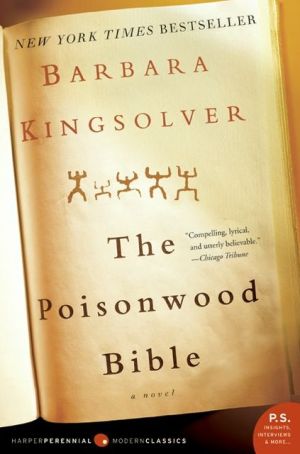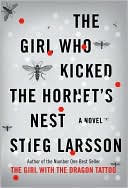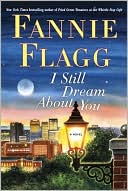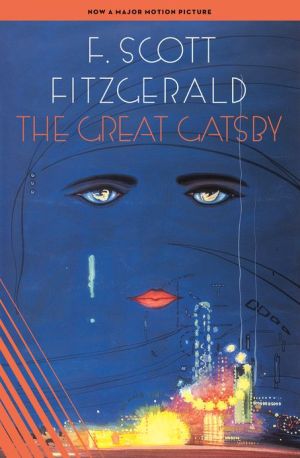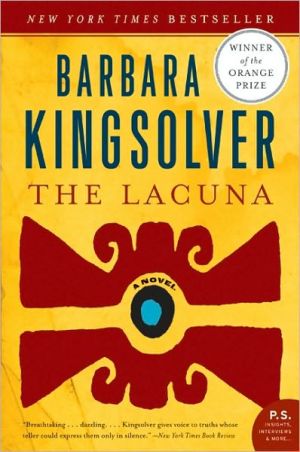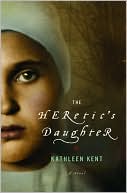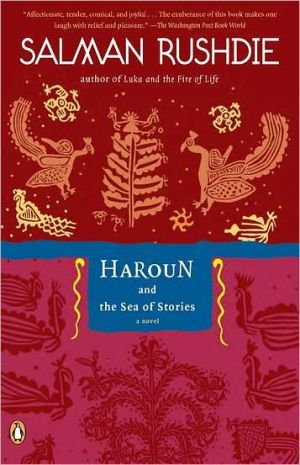The Poisonwood Bible
The Poisonwood Bible is a story told by the wife and four daughters of Nathan Price, a fierce, evangelical Baptist who takes his family and mission to the Belgian Congo in 1959. They carry with them everything they believe they will need from home, but soon find that all of it — from garden seeds to Scripture — is calamitously transformed on African soil. What follows is a suspenseful epic of one family's tragic undoing and remarkable reconstruction over the course of three decades in...
Search in google:
The Poisonwood Bible is a story told by the wife and four daughters of Nathan Price, a fierce, evangelical Baptist who takes his family and mission to the Belgian Congo in 1959. They carry with them everything they believe they will need from home, but soon find that all of it—from garden seeds to Scripture—is calamitously transformed on African soil. What follows is a suspenseful epic of one family's tragic undoing and remarkable reconstruction over the course of three decades in postcolonial Africa.GlamourMost impressive are the humor and insight with which Kingsolver describes a global epic, proving just how personal the political can be.
Book One\ Genesis\ And God said unto them,\ Be fruiful, and multiply, and replenish the earth,\ and subdue it: and have dominion\ over the fish of the sea, and over the foul of the air,\ and over every living thing that moveth upon the earth.\ \ Genesis 1:28\ Orleanna Price\ Sanderling Island, Georgia\ Imagine a ruin so strange it must never have happened.\ First, picture the forest. I want you to be its conscience, the eyes in the trees. The trees are columns of slick, brindled bark like muscular animals overgrown beyond all reason. Every space is filled with life: delicate, poisonous frogs war-painted like skeletons, clutched in copulation, secreting their precious eggs onto dripping leaves. Vines strangling their own kin in the everlasting wrestle for sunlight. The breathing of monkeys. A glide of snake belly on branch. A single-file army of ants biting a mammoth tree into uniform grains and hauling it down to the dark for their ravenous queen. And, in reply, a choir of seedlings arching their necks out of rotted tree stumps, sucking life out of death. This forest eats itself and lives forever.\ Away down below now, single file on the path, comes a woman with four girls in tow all of them in shirtwaist dresses. Seen from above this way they are pale, doomed blossoms, bound to appeal to your sympathies. Be careful. Later on you'll have to decide what sympathy they deserve. The mother especially--watch how she leads them on, pale-eyed, deliberate. Her dark hair is tied in a ragged lace handkerchief, and her curved jawbone is lit with large, false-pearl earrings, as if these headlamps from another world might show the way. The daughters march behind her, four girls compressed in bodies as tight as bowstrings, each one tensed to fire off a woman's heart on a different path to glory or damnation. Even now they resist affinity like cats in a bag: two blondes--the one short and fierce, the other tall and imperious--flanked by matched brunettes like bookends, the forward twin leading hungrily while the rear one sweeps the ground in a rhythmic limp. But gamely enough they climb together over logs of rank decay that have fallen across the path. The mother waves a graceful hand in front of her as she leads the way, parting curtain after curtain of spiders-webs. She appears to be conducting a symphony. Behind them the curtain closes. The spiders return to their killing ways.\ At the stream bank she sets out their drear picnic, which is only dense, crumbling bread daubed with crushed peanuts and slices of bitter plantain. After months of modest hunger the children now forget to complain about food. Silently they swallow, shake off the crumbs, and drift downstream for a swim in faster water. The mother is left alone in the cove of enormous trees at the edge of a pool. This place is as familiar to her now as a living room in the house of a life she never bargained for. She rests uneasily in the silence, watching ants boil darkly over the crumbs of what seemed, to begin with, an impossibly meager lunch. Always there is someone hungrier than her own children. She tucks her dress under her legs and inspects her poor, featherless feet in their grass nest at the water’s edge--twin birds helpless to fly out of there, away from the disaster she knows is coming. She could lose everything: herself, or worse, her children. Worst of all: you, her only secret. Her favorite. How could a mother live with herself to blame?\ She is inhumanly alone. And then, all at once, she isn't. A beautiful animal stands on the other side of the water. They look up from their lives, woman and animal, amazed to find themselves in the same place. He freezes, inspecting her with his black-tipped ears. His back is purplish-brown in the dim light, sloping downward from the gentle hump of his shoulders. The forest’s shadows fall into lines across his white-striped flanks. His stiff forelegs splay out to the sides like stilts, for he's been caught in the act of reaching down for water. Without taking his eyes from her, he twitches a little at the knee, then the shoulder, where a fly devils him. Finally he surrenders his surprise, looks away and drinks. She can feel the touch of his long, curled tongue on the water's skin, as if he were lapping from her hand. His head bobs gently, nodding small, velvet horns lit white from behind like new leaves.\ It lasted just a moment, whatever that is. One held breath? An ant’s afternoon? It was brief, I can promise that much, for although it’s been many years now since my children ruled my life, a mother recalls the measure of the silences. I never had more than five minutes’ peace unbroken. I was that woman on the stream bank, of course. Orleanna Price, Southern Baptist by marriage, mother of children living and dead. That one time and no other the okapi came to the stream, and I was the only one to see it.\ I didn't know any name for what I’d seen until some years afterward in Atlanta, when I attempted briefly to consecrate myself in the public library, believing every crack in my soul could be chinked with a book. I read that the male okapi is smaller than the female, and more shy, and that hardly anything else is known about them. For hundreds of years people in the Congo Valley spoke of this beautiful, strange beast. When European explorers got wind of it, they declared it legendary: a unicorn. Another fabulous tale from the dark domain of poison-tipped arrows and bone-pierced lips. Then, in the 1920s, when elsewhere in the world the menfolk took a break between wars to perfect the airplane and the automobile, a white man finally did set eyes on the okapi. I can picture him spying on...
\ From Barnes & NobleThe Barnes & Noble Review\ Barbara Kingsolver calls her new novel, The Poisonwood Bible, her "magnum opus." And it is — 500-plus pages of "the deepest-delving" fiction she's ever written, not to mention a fresh new locale. Packed with themes of cultural diversity, political morality, and environmental ethics, this one, unlike her three previous Southwestern novels, is set in postcolonial Africa. The narrative begins in the relatively tame Belgian Congo of the late 1950s, gains speed in the tumultuous early '60s (with the coup of the independent Lumumba government toppled by the CIA-backed, UN-funded Mobutu government), then branches out several decades in the future. "I set out to ask a very long question," Kingsolver says. "What have we done as a nation, a culture, a people to Africa, and where do we go from here?" \ Kingsolver has been waiting her entire life to write this novel. When she was seven years old, her mother and father, both public health officials, moved their family to the Congo for several years. She laughs and says, "I'm happy to say my parents are wonderful people, not at all like the family in the book." There they practiced their medicine while young Barbara kept a journal. She explains the impact: "Living in that part of the world during the formative years of my childhood introduced me to the possibility that everything I had always assumed was right could be totally wrong in another place." Although the story is in no way about her personal familial experience, much of the setting and detail are torn from the pages of that journal. That's not to say she didn't do a heapofresearch; there's an extensive bibliography included at the end of the novel. She also made a number of trips back to Africa and had many experts comment on the manuscript, including the activist, journalist, convicted murderer, and cause célèbre Mumia Abu-Jamal, who gave it the thumbs-up from his cell in the Pennsylvania state penitentiary.\ The Poisonwood Bible is the saga of the Price family, a rural Georgia family wrestling with inner demons while living in the small African village of Kilanga. It revolves around Nathan Price, an abusive southern Baptist evangelical minister who forsakes his family on his quest to save the souls of the natives. What begins as a church-sanctioned mission ends in a dangerous battle of wills that separates the Price family forever. The action is filtered primarily through Nathan's four daughters, à la As I Lay Dying, with future-time flashbacks from the mother's point of view. It's through the girls that we learn about Nathan's proclivity toward physical and mental abuse, his lack of fear regarding growing political unrest, and his stubborn insistence that the villagers be baptized in crocodile-infested waters. And through their mother, Orleanna, we find out why Nathan lives with such a heavy and hurtful God-fearing heart: In World War II his entire company died during the Bataan Death March. Although Nathan was honorably discharged, survivor's guilt led him to the jungles of Africa and did not permit him to retreat, no matter what the cost. The price of this intractable attitude is disease, death, and madness.\ The novel's post-Congo years, which describe what the Price women do with their lives after the 17 months in the bush, are slightly anticlimactic, but the first 400 pages of this book are stunning and historically accurate to boot. Two scenes in particular are extraordinarily vivid and powerful. The first is a depiction of the biannual migration of ants, a literal sea of ants eating its way across Africa. Kingsolver has seen this natural phenomenon firsthand. "It's thought of as a cleansing. You try to remember the baby and the chickens and let the ants go on about purifying the country." The second happens the day the villagers, plagued by starvation, set fire to the high grass to burn out game. Kingsolver has the ability, in a beautifully painful sort of way, to make these scenes come alive with a single sentence: "Birds hit the wall of fire and lit like bottle rockets."\ Although Kingsolver does as few media appearances as she can and ignores media hype with "every molecule" of her being, she has once again consented to do a multicity book tour for her new novel. "I was raised Southern," she says. "It's almost not in me to disappoint people. But what's most important to me is being a mother, a writer, and a responsible member of the community in which I live. The other stuff is incidental. Somehow our culture has dragged authors into this celebrity scene, and it's a place where we really don't belong. I have more to offer if I stay at home and write another book."\ The Poisonwood Bible is certainly Kingsolver's most daring and quite possibly her most engaging and provocative outing yet. And if staying at home means another book like it, well, surely the world will survive with one less book tour.\ Nelson Taylor is a freelance writer who lives in Brooklyn, New York. He currently writes for Time Out, Paper, Bikini, Bomb, and Salon.\ \ \ \ \ \ Emily MitchellBeautifully written.\ —Entertainment Weekly\ \ \ Emily BurnsThis story of Nathan Price, a Baptist missionary to the Belgian Congo in 1959, on the eve of Congolese independence, is a deep, multifaceted narrative. Told in alternating chapters by Nathan's wife and four daughters, it's the compelling story of a wife stretched beyond her limits, of daughters struggling to grow up in an alien environment, and of the Congo's development. Reminiscent of Joseph Conrad's Heart of Darkness, it is a story of the insanity that can befall a white man set on bending Africa's landscape and people to his own will. Kingsolver is a great talent, ably using African languages in her prose while developing a story with all the elements of a true classic.\ — Book: The Magazine for the Reading Life\ \ \ \ \ New York Times Book ReviewHaunting . . . A novel of character, a narrative shaped by keen-eyed women.\ \ \ \ \ NewsweekFully realized, richly embroidered, triumphant.\ \ \ \ \ TimePowerful . . . Kingsolver is a gifted magician of words.\ \ \ \ \ PeopleBeautifully written . . . Kingsolver's tale of domestic tragedy is more than just a well-told yarn . . . Played out against the bloody backdrop of political struggles in Congo that continue to this day, it is also particularly timely.\ \ \ \ \ USA TodayTragic, and remarkable..A novel that blends outlandish experience with Old Testament rhythms of prophecy and doom.\ \ \ \ \ Boston GlobeThe book's sheer enjoyability is given depth by Kingsolver's insight and compassion for Congo, including its people, and their language and sayings.\ \ \ \ \ GlamourMost impressive are the humor and insight with which Kingsolver describes a global epic, proving just how personal the political can be.\ \ \ \ \ Chicago TribuneCompelling, lyrical and utterly believable.\ \ \ \ \ San Diego Union-TribuneA triple-decker, different coming-of-age novel, but also a clever look at language and cultures.\ \ \ \ \ Portland OregonianA novel that brims with excitement and rings with authority.\ \ \ \ \ Atlanta Journal-ConstitutionKingsolver's work is a magnum opus, a parable encompassing a biblical structure and a bibliography, and a believable cast of African characters.\ \ \ \ \ Kate ClintonIn The Poisonwood Bible, Kingsolver is at the top of her fiction form. She writes spectacularly in the varied voices of the four daughters and the wife of Baptist missionary Nathan Price. The big bully of the pulpit transplants his family from Bethlehem, Georgia, to the Belgain congo, where they are often hilariously, but finally woefully, unprepared for the hardships of the jungle. Kingsolver also masterfully explicates the complex and tragic history of the Congolese rebels of 1959, their struggle for independence, and the outbreak of war. \ — The Progressive\ \ \ \ \ NewsdayA bravura performance . . . A subtle and complex creation, dealing with epic subjects with invention and courage and a great deal of heart.\ \ \ \ \ Los Angeles Times Book ReviewA powerful new epic . . . She has with infinitely steady hands worked the prickly threads of religion, politics, race, sin and redemption into a thing of terrible beauty.\ \ \ \ \ Chicago Tribune BooksCompellinglyrical and utterly believable.\ \ \ \ \ Front PageHaunting..A novel of character, a narrative shaped by keen-eyed women.\ \ \ \ \ Gayle GreeneAs these characters let go of old beliefs and construct new visions, Barbara Kingsolver leads us to see the limits of our own. \ —Women's Review of Books\ \ \ \ \ Publishers WeeklyIn this risky but resoundingly successful novel, Kingsolver leaves the Southwest, the setting of most of her work (The Bean Trees; Animal Dreams) and follows an evangelical Baptist minister's family to the Congo in the late 1950s, entwining their fate with that of the country during three turbulent decades. Nathan Price's determination to convert the natives of the Congo to Christianity is, we gradually discover, both foolhardy and dangerous, unsanctioned by the church administration and doomed from the start by Nathan's self-righteousness. Fanatic and sanctimonious, Nathan is a domestic monster, too, a physically and emotionally abusive, misogynistic husband and father. He refuses to understand how his obsession with river baptism affronts the traditions of the villagers of Kalinga, and his stubborn concept of religious rectitude brings misery and destruction to all. Cleverly, Kingsolver never brings us inside Nathan's head but instead unfolds the tragic story of the Price family through the alternating points of view of Orleanna Price and her four daughters. Cast with her young children into primitive conditions but trained to be obedient to her husband, Orleanna is powerless to mitigate their situation. Meanwhile, each of the four Price daughters reveals herself through first-person narration, and their rich and clearly differentiated self-portraits are small triumphs. Rachel, the eldest, is a self-absorbed teenager who will never outgrow her selfish view of the world or her tendency to commit hilarious malapropisms. Twins Leah and Adah are gifted intellectually but are physically and emotionally separated by Adah's birth injury, which has rendered her hemiplagic. Leah adores her father; Adah, who does not speak, is a shrewd observer of his monumental ego. The musings of five- year-old Ruth May reflect a child's humorous misunderstanding of the exotic world to which she has been transported. By revealing the story through the female victims of Reverend Price's hubris, Kingsolver also charts their maturation as they confront or evade moral and existential issues and, at great cost, accrue wisdom in the crucible of an alien land. It is through their eyes that we come to experience the life of the villagers in an isolated community and the particular ways in which American and African cultures collide. As the girls become acquainted with the villagers, especially the young teacher Anatole, they begin to understand the political situation in the Congo: the brutality of Belgian rule, the nascent nationalism briefly fulfilled in the election of the short-lived Patrice Lumumba government, and the secret involvement of the Eisenhower administration in Lumumba's assassination and the installation of the villainous dictator Mobutu. In the end, Kingsolver delivers a compelling family saga, a sobering picture of the horrors of fanatic fundamentalism and an insightful view of an exploited country crushed by the heel of colonialism and then ruthlessly manipulated by a bastion of democracy. The book is also a marvelous mix of trenchant character portrayal, unflagging narrative thrust and authoritative background detail. The disastrous outcome of the forceful imposition of Christian theology on indigenous natural faith gives the novel its pervasive irony; but humor is pervasive, too, artfully integrated into the children's misapprehensions of their world; and suspense rises inexorably as the Price family's peril and that of the newly independent country of Zaire intersect. Kingsolver moves into new moral terrain in this powerful, convincing and emotionally resonant novel.\ \ \ \ \ Library JournalIt's been five years since Kingsolver's last novel (Pigs in Heaven, LJ 6/15/93), and she has used her time well. This intense family drama is set in an Africa on the verge of independence and upheaval. In 1959, evangelical preacher Nathan Price moves his wife and four daughters from Georgia to a village in the Belgian Congo, later Zaire. Their dysfunction and cultural arrogance proves disastrous as the family is nearly destroyed by war, Nathan's tyranny, and Africa itself. Told in the voices of the mother and daughters, the novel spans 30 years as the women seek to understand each other and the continent that tore them apart. Kingsolver has a keen understanding of the inevitable, often violent clashes between white and indigenous cultures, yet she lets the women tell their own stories without being judgmental. An excellent novel that was worth the wait and will win the author new fans. --Ellen Flexman, Indianapolis-Marion Cty. P.L.\ \ \ \ \ John Skow...Kingsolver...is a gifted magician of words -- Her novel is both powerful and quite simple....also angrier and more direct than her earlier books.\ — Time Magazine\ \ \ \ \ Michiko KakutaniKingsolver's powerful new book is actually an old-fashioned 19th-century novel, a Hawthornian tale of sin and redemption and the `dark necessity' of history.\ — The New York Times\ \ \ \ \ Jane SmileyThere are few ambitious, successful and beautiful novels. Lucky for us, we have one now.\ — Washington Post Book World\ \ \ \ \ Newsweek...[D]evastating...five narrators [compete] to break your heart.\ \ \ \ \ NY Times MagazineA quantum-leap breakthrough...learned, tragicomic and sprawling.\ \ \ \ \ The NationBarbara Kingsolver has dreamed a magnificent fiction and a ferocious bill of indictment..What we have here'with this new, mature, angry, heartbroken, expansive out-of-Africa Kingsolver'is at last our very own Lessing and our very own Gordimer.\ \ \ \ \ Lee Siegel...[T]he most successful practitioner of a style in contemporary fiction that might be called Nice Writing....Barbara Kingsolver can be a very funny writer; her infrequent outbursts of humor make up her best quality.\ — The New Republic\ \ \ \ \ LA Times Book ReviewA powerful new epic..She has with infinitely steady hands worked the prickly threads of religion, politics, race, sin and redemption into a thing of terrible beauty.\ \ \ \ \ Katherine SojournerIn her most complex novel to date, Kingsolver presents her five narrators—the wife and daughters of a Baptist missionary sent to the Belgian Congo in 1959. The characters are fully developed and their compassionate telling of their story is truly memorable.\ \ \ \ \ Kirkus ReviewsThe first novel in five years from the ever-popular Kingsolver (Pigs in Heaven) is a large-scale saga of an American family's enlightening and disillusioning African adventure. \ It begins with a stunningly written backward look: Orleanna Price's embittered memory of the uncompromising zeal that impelled her husband, Baptist missionary Nathan Price, to take her and their four daughters to the (then) Belgian Congo in 1959, and remain there despite dangerous evidence of the country's instability under Patrice Lumumba's ill-starred independence movement, Belgian and American interference and condescension, and Joseph Mobutu's murderous military dictatorship.\ The bulk of the story, which is set in the superbly realized native village of Kilanga, is narrated in turn by the four Price girls: Leah, the 'smart' twin, whose worshipful respect for her father will undergo a rigorous trial by fire; her 'retarded' counterpart Adah, disabled and mute (though in the depths of her mind articulate and playfully intelligent); eldest sister Rachel, a self-important whiner given to hilarious malapropisms ('feminine tuition'; 'I prefer to remain anomalous'); and youngest sister Ruth May, whose childish fantasies of union with the surrounding, smothering landscape are cruelly fulfilled.\ Kingsolver skillfully orchestrates her characters' varied responses to Africa into a consistently absorbing narrative that reaches climax after climax, and that, even after you're sure it must be nearing its end, continues for a wrenching hundred pages or more, spelling out in unforgettable dramatic and lyric terms the fates of the surviving Prices. Little recent fiction has so successfully fused the personal with the political. Better even than Robert Stone in his otherwise brilliant Damascus Gate, Kingsolver convinces us that her characters are, first and foremost, breathing, fallible human beings and only secondarily conduits for her book's vigorously expressed and argued social and political ideas. A triumph.\ \ \
